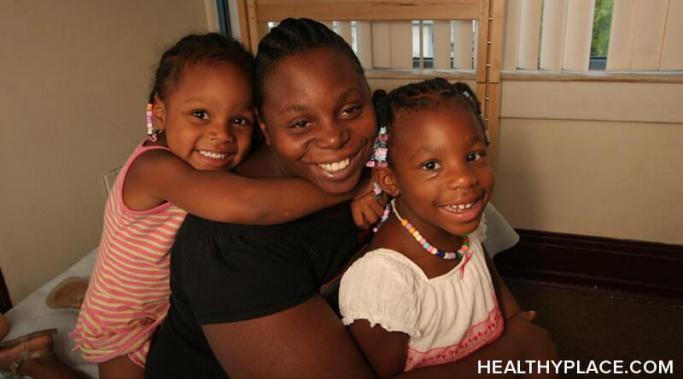I am an introvert who is coping with depression. Being introverted is a personality trait where I thrive on independence and recharge mentally when alone. I can also become emotionally drained when I'm in social settings, including at work. So, how am I, as an introvert, supposed to reach out for help and not become entirely isolated when I'm experiencing an episode of depression? Even though it has been difficult, within the last year, I have come up with some ways of coping with my depression that do not emotionally drain me but allow me not to become isolated.
Depression Coping Skills
My name is Dawn Gressard, and I am ecstatic to be a new writer for the "Coping with Depression" blog at HealthyPlace. As a trainer of peer support specialists, I know how vital it is to share similar lived experiences with others, not only for our coping with depression and recovery but for others’ coping as well. It is always easier to endure the journey when you know you are not alone -- and none of us are.
In the 15 or so years that I've lived with depression, I’ve built a metaphorical toolbox of techniques and relationships that help me keep the darkness at bay. Two of these depression coping tools are my dogs. Here’s how bundles of fur and slobber, known as dogs, help me cope with depression.
For depression sufferers, it can feel like our minds filter out positive emotions and turn our thoughts into a vortex of negativity. Seeing the pain and suffering caused by natural disasters often exacerbates depression.
Life can get hard when things don't go as planned, and this is one of those situations. After writing for HealthyPlace about depression for three years and four months, I had no idea my journey would be cut short. Due to worsening mental health struggles, I have decided to stop writing about depression as an act of self-care. This is my last post for the "Coping with Depression" blog, and I want to express my gratitude to team HealthyPlace and my readers.
Has depression made you feel worthless? If so, you are not alone. You may even believe that you are worthless due to depression. Read on to find out how to fight this.
It's no secret that depression can affect your behavior -- that it can cause you to do and say things you wouldn't ever otherwise do or say. But when should you hold yourself accountable for bad behavior? And to what extent does mental illness excuse bad behavior? What kind of allowances should we expect in times of poor mental health, and what kind of allowances should we be prepared to grant to others? When is depression simply not an excuse?
Parenting in public can feel like diffusing a bomb with an audience, no protective gear, and no clue which wire to cut. Make one wrong move, and you risk turning a minor tantrum into a five-alarm meltdown, and what's worse, you risk the disapproving glances and tuts of passing strangers. No parent is immune to the fear of judgment but allowing this fear to dictate how your interact with your child in moments of emotional turmoil can have serious consequences for you and your child. So, I have learned to filter out the looks, the eyebrow raises, and the gasps and made a conscious commitment to start practicing what I call tunnel vision parenting.
The title of this blog is "Coping with Depression." In the past, I've used it to talk about ways to feel productive, beat procrastination, and improve relationships during a depressive episode. But the reality is that some days, "coping" just means surviving through the worst days. So, in honor of World Suicide Prevention Month, I would like to offer some simple tips on how to get through when "getting through" seems impossible.
Depression relapses happen. This is a truth that everyone in depression recovery must accept. But not all relapses are created equal, and there are things you can do to mitigate or even pre-empt a relapse before it becomes a mental health crisis. The key is learning how to recognize the earliest symptoms of depression relapse and treating them with your very own mental health first aid kit before more serious intervention is required.









